Iran Acknowledges Qatar, Oman's Mediation In Release Of Frozen Assets
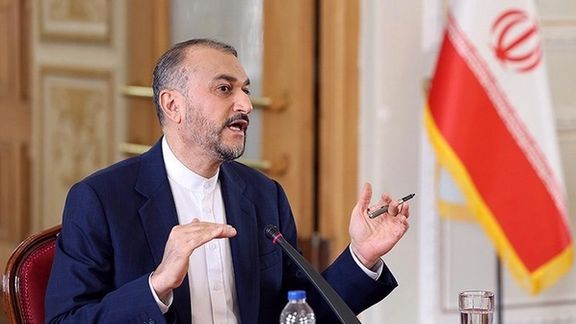
Iran's foreign minister has expressed his gratitude for the mediation efforts of Qatar and Oman in the ongoing process to release Tehran's frozen assets.

Iran's foreign minister has expressed his gratitude for the mediation efforts of Qatar and Oman in the ongoing process to release Tehran's frozen assets.
Hossein Amir-Abdollahian made separate telephone conversations to his Omani and Qatari counterparts during which he recognized and commended their mediation efforts to facilitate negotiations to unfreeze Iran's assets.
These discussions also underline the multifaceted nature of Iran's diplomatic engagement, encompassing broader bilateral economic, political, and regional matters.
Earlier this month, Iran and the United States announced that $6 billion frozen in South Korea due to US sanctions will be released through Qatari mediation, as Iran releases five US hostages from prison into home detention.
The Iranians insist that the release of the US citizens was part of a prisoner exchange agreement not related to the release of the funds. However, it is clear that the hostages are being kept in Tehran until the money reaches Iranian bank accounts in Qatar.
Currently, the funds are with the central bank of Switzerland, which is exchanging them into Euros gradually and will transfer to Qatar where Iran will be able to access them.
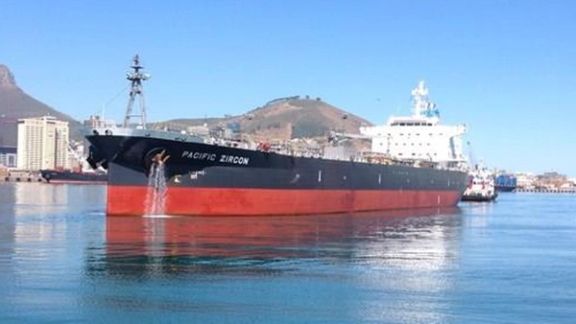
A former Iranian Oil Company official stressed Tehran's dependence on China's oil market citing global reluctance due to US sanction to import energy from Iran.
Mohsen Qamsari, during an exclusive interview with the Iranian Labour News Agency (ILNA), shed light on Iran's plans to bolster its oil production and exports in light of the declining trajectory of Saudi Arabia's oil exports.
He underscored the aspiration to achieve a daily production level of 3.4 million barrels, although he lamented the limited export opportunities beyond the Chinese market. Qamsari stated that Saudi Arabia's export reduction is insufficient to create a substantive opening for Iran's oil exports. He also argued that Saudi shipments fluctuate seasonally.
In the context of Iran's oil market dynamics, Qamsari illuminated Russia's perception of Iran as a competitor, exemplified by its decade-long actions aimed at diminishing Iran's presence in the oil markets. This competitive environment also endures regarding China. The proximity of Russia to China, fortified by a pipeline facilitating Russian oil exports to China, further exacerbates the challenge for Iran in the Chinese market.
Iran's oil minister recently announced a projection of reaching a daily crude oil output of 3.4 million barrels by the end of September, despite ongoing US sanctions.
TankerTrackers.com has reported that in the initial 20 days of August, Iran dispatched an average of over two million barrels of oil daily, marking a more than 30-percent surge compared to the past few months.
The renewed growth in production and exports coincides with an agreement permitting the release of $6 billion of Iranian funds frozen in South Korean banks, potentially indicative of broader diplomatic dealings beyond the public eye.

Iran's Judiciary has called on the US government to pay $330 million in compensation for its alleged role in the Nojeh coup plot against Iran's regime in July 1980.
Widely referred to as the Nojeh Coup, the Saving Iran's Great Uprising was a scheme aimed at toppling the recently formed clerical regime Iran, along with its leadership under President Abolhassan Banisadr and Ruhollah Khomeini.
The plot, which was never executed, involved officers of Iran's royal army and civilians opposed to the Islamic Republic. This is the first time that the Iranian regime is accusing the United States of involvement in the plot.
According to the court verdict, the US government has been sentenced to pay $30 million for material and moral damages to the plaintiffs and $300 million for punitive damages.
The judiciary media center announced Saturday that “an open court session was held last month to address the claims of the families of the victims of the coup incident. The session took place at a judicial complex in Tehran, with the presence of survivors and those affected by the incident.”
The coup plot involved personnel from infantry, air force, army, and secret service of the Shah. It was largely foiled by the arrest of numerous officers on July 9-10, 1980, at Nojeh Air Base near Hamedan, west of Iran.
The demand from the Iranian regime comes in the wake of a deal with the Biden administration earlier this month to unblock $6 billion of Iran's frozen funds in exchange for five US citizens held hostage by Iran.
While Khomeini ordered the execution of those involved, Banisadr employed legal tactics to postpone the executions. With the Iraq invasion, many were released under the pledge of returning to duty. Nonetheless, 144 participants were executed, and 2,000–4,000 military personnel were dismissed.

Iran succeeded in freeing its blocked funds without the revival of the JCPOA nuclear accord, Tehran’s chief negotiator Ali Bagheri-Kani told the state television.
The United States was insisting all along during nuclear talks that Iran’s funds would be released only after a nuclear deal was reached, Bagheri-Kani said during a television interview Thursday evening. However, “Iran’s diplomacy shaped conditions in such a way that the Americans were forced to retreat from their position and free Iran’s funds outside the framework of a [nuclear] agreement.”
Earlier this month, Iran and the United States announced that $6 billion frozen in South Korea due to US sanction will be released through Qatari mediation, as Iran moved five US hostages from prison into home detention. The Iranians insist that the US citizens will be released only as a prisoner exchange deal, and the release of the funds from South Korea is not related to the hostage deal. However, it is clear that the hostages are being kept in Tehran until the money reaches Iranian bank accounts in Qatar. Currently, the funds are with the Swiss central bank, which is exchanging them into euros gradually and will transfer to Qatar.
Bagheri-Kani confirmed that talks over the hostages were taking place alongside nuclear negotiations in 2021-2022, but the process ended when Russia invaded Ukraine in February 2022 and the delegations left Vienna after almost a year of periodic meetings.
He added that Iran continued pursuing the issue of the blocked funds through intermediaries and the US was resisting. In September 2022, however, “Americans accepted to take steps for releasing the money outside the framework of the nuclear talks, after our persistent follow-ups.”
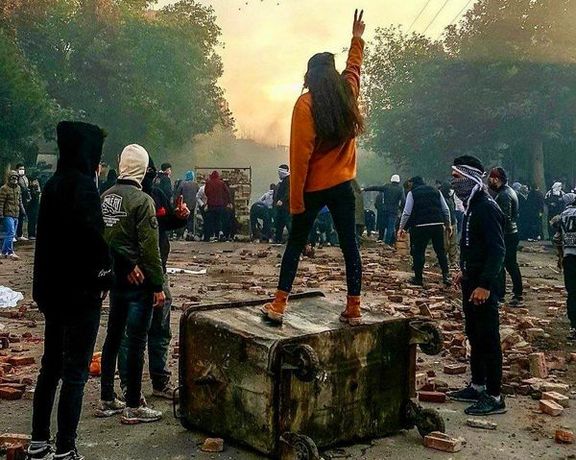
This coincides with the start of nationwide antiregime protests in Iran immediately after the hijab police fatally wounded Mahsa Amini, a 22-year-old woman in mid-September. Once the protests began, the Biden administrations began voicing support for the Iranian people and their human rights. But if we believe the senior Iranian diplomat, this was the time the US administration agreed to discuss the release of the funds.
In early October, the State Department announced that the US was no longer pursuing the revival of the JCPOA.
“Our focus is not an accord that isn’t moving forward, but what is happening in Iran ... this popular movement and the brutal crackdown of the regime against protesters,” US special envoy Rob Malley said in Paris on October 14.“It’s the sale of armed drones by Iran to Russia ... and the liberation of our hostages…”
Two day later, Malley told CNN that "Right now the talks on revival of JCPOA are not on the US agenda; the focus is on what's happening in Iran as the talks are stalled," adding that “Iran has taken a position in those talks for the past two months, which is simply inconsistent with a return to the deal.” The same message was reiterated several times by Secretary of State Antony Blinken and other top officials.
Iranian protesters and their supporters in the US, Europe and elsewhere took these remarks as indication that the Biden administration had given up dealing with Tehran, while Bagheri-Kani’s remarks indicate behind the scenes talks were taking place for the release of the funds.
Bagheri-Kani said in his interview that the protests in Iran briefly “distracted” the Biden administration, “but they quickly returned to the talks at the end of autumn.”
Critics see the hostage deal as a dangerous step by the US, which will embolden Tehran to detain more Americans given the chance and the money can empower it to undertake anti-West actions.
Moreover, media reports have hinted that the administration has in fact reached a wider, unwritten deal with Tehran, because around $3 billion was also released from Iraq. Supposedly, Iran has agreed to marginally slow down its uranium enrichment in exchange for the funds and a US willingness not to actively enforce existing sanctions.

Qatar has expressed hope that a recent Iran-US prisoners exchange agreement his country brokered leads to a wider dialogue on Iran's nuclear program.
Qatari Prime Minister and Foreign Minister Sheikh Mohammed Bin Abdulrahman Al Thani made the remarks on Friday, saying, "With Iran, we became a key mediator with the US in the prisoner swap agreement which we hope will lead to a wider dialogue on the nuclear deal."
During a media briefing earlier in the week, Qatar's Foreign Ministry spokesperson Majed bin Mohammed al-Ansari underlined Doha’s important role in achieving consensus between the two sides and facilitating communication with various stakeholders for the implementation of the agreement.
The deal entails the release of five American prisoners detained in Tehran in exchange for the liberation of five Iranian prisoners held in the United States as well as the release of $6 billion of frozen Iranian assets.
As a first step in this deal – which followed a two-year mediation effort by Qatar and Oman -- Iran on August 10 released four imprisoned US citizens from Evin prison into house arrest, where they joined a fifth already under home confinement.
These include businessman Siamak Namazi, 51, Emad Sharqi, 58, and environmental activist Morad Tahbaz, 67, who holds British nationality in addition to Iranian citizenship. The identities of the fourth and fifth Americans who either left prison or were under house arrest have not been disclosed.
World powers were in talks in Vienna for months to revive the 2015 Iran nuclear deal. The negotiations collapsed in March over Tehran’s demands that Revolutionary Guards be removed from a US list of foreign terrorist organizations and ‘guarantees’ to cushion its economy and nuclear program from the US again leaving the the Joint Comprehensive Plan of Action.
The Biden administration has been striving to bring the United States back into the JCPOA, a deal that was previously abandoned under the Trump administration.
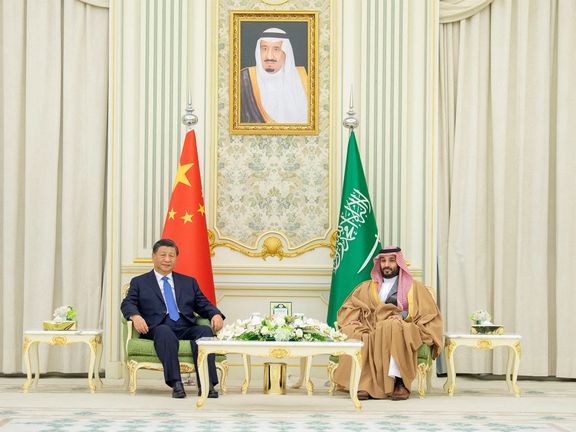
As Saudi Arabia continues to pursue an ambitious nuclear program, it has turned to China to pressure Washington as US talks stall.
The Kingdom’s bid to reach parity with Iran, in spite of revived diplomatic relations this year, is driving the Persian Gulf’s oil powerhouse to reach out to China, according to the Wall Street Journal.
Saudi Arabia has asked the US to help it develop a civilian nuclear program as part of a potential deal that would include diplomatic normalization with Israel, which Riyadh doesn’t recognize. Saudi Arabia is also asking the US to provide security guarantees for the kingdom as part of such a deal.
It is causing dilemmas for the United States, which is walking a tightrope in the region, with continuing tensions with Iran and an ever-hungrier Saudi Arabia seeking uranium enrichment on its home soil.
Bypassing the US in favor of China, which earlier this year was a major part of the negotiations to reinstate diplomatic relations between Iran and Saudi, is a firm statement that with or without President Joe Biden’s agreement, Riyadh will do all it can to forge its way into the nuclear domain.
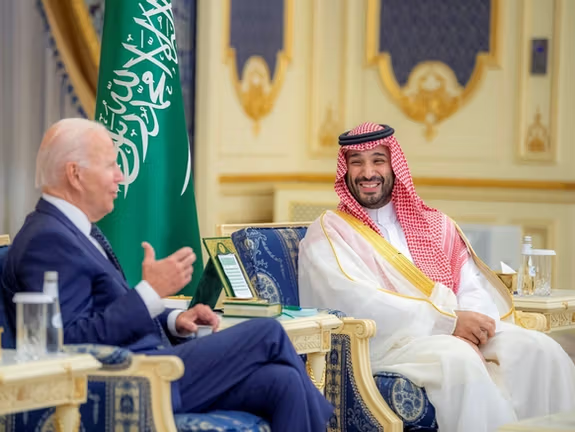
According to Israel’s Haaretz, leading American and Israeli experts are warning the Biden administration not to accept Saudi demands for uranium enrichment as part of a future US-Saudi-Israeli normalization agreement, for fear it will build its own nuclear weapons.
The fears emerged after Israel’s Strategic Affairs Minister Ron Dermer did not rule out Saudi uranium enrichment during an interview with PBS. He argued the Saudis could go to China or France to set up a native nuclear enrichment program, suggesting it would be better to have the US, Israel’s most important ally, involved.
A Saudi-Israel deal, alongside the shadow war with Iran, is atop Israeli Prime Minister Benjamin Netanyahu’s agenda, and many in Israel fear he will reach it at any cost as he approaches the end of his decades-long political career.
Opposition leader Yair Lapid said this week: “It is clear to everyone that if they [Saudi] start enriching uranium in the Middle East, everyone will want to."
Until now, the US has said American nuclear aid is contingent on the Saudis agreeing to not enrich their own uranium or mine their own uranium deposits in the kingdom—non-proliferation conditions not sought by China, which has been seeking to strengthen its influence in the Middle East.
China National Nuclear Corp., a state-owned company known as CNNC, has bid to build a nuclear plant in Saudi Arabia’s Eastern Province, near the border with Qatar and the United Arab Emirates, according to the WSJ, which claims the dealings with China are a pressure tactic on Washington as the two nations drifted further apart since the Biden administration came to power.
Biden promised to make Saudi a ‘pariah state’ after the brutal assassination of US-Saudi journalist Jamal Khashoggi, which has caused years of tension between Biden and Saudi’s de facto ruler, Crown Prince Mohammed Bin Salman.
Crown Prince Mohammed Bin Salman has made obtaining nuclear power a priority. After a decade of discussions, the Saudis are now impatiently pushing to award a contract for the Eastern Province plant, known as Duwaiheen—a two-reactor, 2.8-gigawatt facility—by the end of 2023 and eventually construct 16 reactors at a cost of some $80 billion to $100 billion.
Driven by the desire for parity with Iran in addition to looking towards a time when the kingdom’s main export, oil, is no longer a viable revenue source and nuclear power would offer a viable alternative, time is now ticking. MBS has made no secret of his willingness to develop nuclear weapons if Iran does.
China has already helped Riyadh build its own ballistic missiles and helped the Saudis with a facility for extracting uranium yellowcake from uranium ore, an initial step toward enriching uranium.
There is no doubt that Saudi Crown Prince has his eye on being the region’s political powerhouse, a fact which has more recently created tensions with the UAE’s President and MBS’s initial mentor on his rise to power, Mohammed Bin Zayed.
Close allies of the US such as the UAE and South Korea have accepted stronger restrictions on their nuclear programs and will see US support for enrichment on Saudi soil as a justification to demand the same.
Where the Israeli factor plays into the next stages of the race to nuclear is yet to be seen, the Prime Minister’s office claiming hours after Dermer’s comments that it will not allow any of its neighbors to develop nuclear weapons, but there seems no doubt that Saudi Arabia will get its way, whatever the cost.






